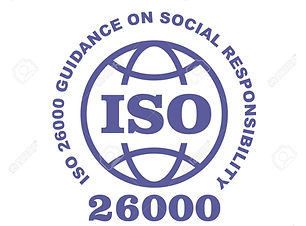
The concept of Corporate Social Responsibility and
its application to non-profit organizations

What is Corporate Social Responsibility and does it apply to non-profit organizations?
Corporate Social Responsibility is a concept that refers to a company's commitment to conducting its business in a socially responsible and ethical manner. It involves integrating social and environmental concerns into a company's business operations and interactions with stakeholders.
Corporate Social Responsibility goes beyond the traditional focus on profit generation and includes a company's efforts to contribute positively to society and minimize its negative impact.
It aims to align business operations with ethical values and social impact, fostering a positive relationship between the company and its various stakeholders, including customers, employees, investors, and the broader community.
While the concept of Corporate Social Responsibility is typically associated with for-profit companies, non-profit organizations can also engage in practices that align with similar principles, often referred to as "Non-Profit Social Responsibility".

Why developing Social Responsibility policies within non-profit organizations?
The strategic reasons for a non-profit organization to engage in Social Responsibility are the following :
Mission Alignment: Non-profit organizations often have a mission centered around social or environmental goals. Developing a Social Responsibility policy ensures that the organization's activities align with its mission and values, reinforcing its capacity to positively impact society.
Advocacy for Social Change: Non-profits often play a role in advocating for social change. A Social Responsibility policy can reinforce the organization's commitment to addressing systemic issues, promoting social justice, and advocating for policies that align with its mission and values.
Stakeholder Engagement: Non-profits interact with various stakeholders, including donors, employees, volunteers, partner institutions, beneficiaries, and the broader community. A Social Responsibility policy can outline strategies for effective stakeholder engagement, ensuring that the organization is responsive to the expectations of its diverse stakeholders.
Attracting and Retaining Talents: Many employees today seek employers who prioritize social and environmental responsibility. A dedicated Social Responsibility policy can be valuable for attracting top talents and improve staff retention.
Resource Allocation: Non-profits often operate with limited resources. A Social Responsibility policy can guide the responsible allocation of resources, emphasizing efficiency and effectiveness in achieving the organization's goals.
Program Impact and Evaluation: Non-profits are accountable for the impact of their programs and initiatives. A Social Responsibility policy comes with robust program evaluation, transparency in reporting outcomes, and a commitment to continuous improvement to maximize the organization's positive impact.
Community Development: Non-profits frequently work closely with local communities. A Social Responsibility policy can outline the organization's dedication to community development, empowerment, and inclusivity, emphasizing initiatives that contribute to the well-being of the communities it serves.
In summary, Non-Profit Social Responsibility involves integrating ethical, transparent, and socially responsible practices into the core operations of a non-profit organization. This not only aligns with the organization's mission but also strengthens its relationships with stakeholders and enhances its overall capacity to contribute to positive social change.

How to develop a Social Responsibility policy?
ISO 26000 guidelines are the most prominent Social Responsibility-related international standard. They offer guidance to all volunteer organizations (for-profit and non-profit) on socially responsible behavior.
Unlike most ISO standards, they are not coming with a certification process.
ISO 26000 guidelines are articulated around seven core subjects and associated topics that could meaningfully frame the development of a comprehensive Social Responsibility:
Governance: This cross-cutting subject is transversal to the six others and is associated with decision-making processes and structure.
Human rights: They are associated with due diligence, human rights risk situations, avoidance of complicity, resolution of grievances, discrimination and vulnerable groups, civil and political rights, and fundamental principles and rights at work.
Labor practices: These deal with employment and employment relationships, work conditions and social protection, social dialogue, health and safety at work, human development and training in the workplace.
Environment: It is connected with prevention of pollution, sustainable resource use, climate change mitigation and adaptation, protection of the environment, biodiversity, and restoration of natural habitats.
Fair operating practices: This includes anti-corruption, responsible political involvement, fair competition, promoting social responsibility in the value chain, and respect for property rights.
Consumer issues: It encompasses fair marketing, fair contractual practices, consumers’ health and safety protection, sustainable consumption, consumer service, support and dispute resolution, consumer data protection and privacy, access to essential services, and awareness.
Community development: This last core subject deals with community involvement, education and culture, employment creation and skills development, technology development and access, wealth and income creation, health, and social investment.
In addition to providing Social Responsibility policy-makers with substance to frame the development of a dedicated policy, the ISO 26000 guidelines propose a methodology for developing it. They emphasize dialogue with stakeholders and identify the necessary steps to carry out a social responsibility diagnosis, enabling the development of such a policy with its associated action plan.